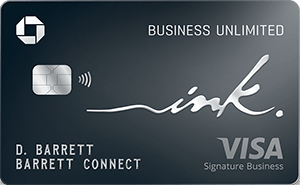

As NerdWallet’s Senior Economist, Elizabeth Renter spends her time analyzing economic trends and data to help people make more informed decisions about their personal finances. Her work has been cited by The New York Times, The Washington Post, the "Today" show, CNBC and elsewhere. Prior to joining NerdWallet in 2014, she was a freelance journalist. She received a Masters of Science in Finance and Economics from West Texas A&M University, and focused her elective coursework on macroeconomics and analytics. When she’s not at work, Elizabeth enjoys college football, old houses, traveling to old cities and powerlifting. She is based in Durham, North Carolina.
Lead Assigning Editor Kim Lowe
Lead Assigning Editor | Consumer lending
Kim Lowe is a lead assigning editor on NerdWallet's loans team. She covers consumer borrowing, including topics like personal loans, student loans, buy now, pay later and cash advance apps. She joined NerdWallet in 2016 after 15 years at MSN.com, where she held various content roles including editor-in-chief of the health and food sections. Kim started her career as a writer for print and web publications that covered the mortgage, supermarket and restaurant industries. Kim earned a bachelor's degree in journalism from the University of Iowa and a Master of Business Administration from the University of Washington. She works from her home near Portland, Oregon.
Fact CheckedMany, or all, of the products featured on this page are from our advertising partners who compensate us when you take certain actions on our website or click to take an action on their website. However, this does not influence our evaluations. Our opinions are our own. Here is a list of our partners and here's how we make money.
Amid the continuing coronavirus pandemic, many small businesses continue to face extreme pressure, forced to adjust to ever-evolving shutdown rules and adopt new practices to keep customers and employees safe.
Congress approved and President Trump signed a year-end $900 billion coronavirus relief package that would provide a second individual stimulus payment. It also provides additional loans and relief for small-business owners and the self-employed, including “gig workers.”
Here is what we know about changes to relief programs for small businesses and self-employed workers.
PPP has exhausted its funds, but other lenders may be able to assist you. See options with Fundera by NerdWallet.
Get StartedTo keep businesses afloat and employees paid, the legislation includes another round of first and second forgivable loans for small-business owners.
The relief bill provides $284.5 billion for the Paycheck Protection Program , which offers loans guaranteed by the Small Business Administration at an interest rate of 1%.
The new PPP authorization expands funding to more industries and businesses, while also allowing some businesses to qualify for a second PPP loan . Second loans target previous borrowers with no more than 300 employees and who can show a 25% drop in annual gross receipts or in any 2020 quarter compared with the same period in 2019. Businesses must also have used or plan to use all of their first PPP loan in order to qualify for a second loan.
Self-employed workers, independent contractors and sole proprietors are also eligible for first and second PPP loans.
The loans don't require fees, personal guarantees or collateral that small-business loans typically involve.
These loans are to be used for payroll and compensation costs, health care benefits, mortgage interest, rent, utilities, and interest incurred on other existing business debts.
The relief bill expands the allowable expenses to include operations costs such as software; supplier costs; protective equipment and workplace modifications to meet health guidelines. It also wraps in property damage from public disturbances in 2020 if these costs weren't covered by insurance.
The relief bill also allocates $20 billion for a second SBA program, the Economic Injury Disaster Loans, which are offered directly from the federal agency. This round of EIDL targets small businesses in low-income communities under the bill.
The EIDL can be transferred into a Paycheck Protection Program loan to take advantage of loan forgiveness. The relief package, however, would eliminate the provision requiring PPP borrowers to deduct the EIDL advance from the PPP loan eligible for loan forgiveness.
Eligible venue owners and promoters may also qualify for the Shuttered Venue Operators Grant, which offers $15 billion in small-business grants . Movie theater operators, talent representatives and other qualifying businesses can receive a grant of up to 45% of their gross earned revenue. The maximum amount is $10 million.
You can't qualify for this grant and receive a PPP loan on or after Dec. 27, 2020.
Smart money moves for your business Grow your small business with tailored insights, recommendations, and expert content.
Paycheck Protection Program loans are 100% forgivable provided that you use the proceeds on allowable expenses during a period of your choosing between eight and 24 weeks following origination. You won't be required to pay back the loan funds if you spend at least 60% of the loan on payroll and the remaining 40% on other covered expenses (detailed above), including mortgage interest payments, rent, utilities, software and supplier costs. This forgiveness amount won't be taxable as gross income, as forgiven debt sometimes is.
The "employee retention credit" was established under the CARES Act in March 2020. It originally provided a 50% payroll tax credit on wages up to $10,000 per employee for businesses that closed to comply with government orders or suffered a decrease in gross receipts of 50% or more compared to the same period in 2019.
on Accelerate Tax's website
The specifics of the tax credit — who qualifies and for how much — were expanded as part of the December 2020 coronavirus relief bill. Starting Jan. 1, 2021, the payroll credit increased to 70% and is now available to businesses that have a 20% drop in gross receipts compared with the same quarter in 2019. Businesses that accept a Paycheck Protection Program loan can now claim the retention credit on any qualified wages not covered by their PPP loan.
The Families First Coronavirus Response Act requires some costs in the interest of public and economic health, but the tax credits offset these costs.
Two weeks of paid leave to quarantined workers or those with COVID-19 symptoms awaiting a diagnosis, capped at 100% of their regular wages or minimum wage, whichever is higher, up to $511 per day or $5,110 over two weeks.
Two weeks of paid leave to those who are unable to work because they have to care for a quarantined loved one, capped at two-thirds the employee’s regular wages or two-thirds minimum wage, whichever is greater, up to $200 per day and $2,000 over the two-week period.
Up to 12 weeks of paid leave for employees who must care for their children whose school or child care is closed due to COVID-19. These payments are capped at two-thirds the employee's regular pay or two-thirds the minimum wage, whichever is higher, up to $200 per day or $12,000 over the 12-week period.
Small businesses may be eligible for an exemption when it comes to leave relating to child care and school closures, if providing that paid leave would put the business in jeopardy.
Because these requirements are expensive, employers and the self-employed are eligible for reimbursement of these payments and the costs to maintain employee health insurance coverage.
The relief bill extends the reimbursement, in the form of tax credits, through the end of March 2021.
We’ll start with a brief questionnaire to better understand the unique needs of your business.
Once we uncover your personalized matches, our team will consult you on the process moving forward.
The relief bill extends deferment of payments for existing business loans guaranteed by the SBA for another three months, starting in February 2021. The payments would be capped at $9,000 per borrower per month.
This means you won’t be required to make payments, and instead, the SBA will pay your lender beginning with the next payment due.
If your current loan is already on deferment, it will enter this six-month grace period after your current deferment has ended.
You can delay payroll tax payments normally due through Jan. 1, 2021. Half of the delayed taxes would be due on Dec. 31, 2021, and the remaining balance by Dec. 31, 2022.
About the authorYou’re following Elizabeth Renter
Visit your My NerdWallet Settings page to see all the writers you're following.
Elizabeth Renter's work as NerdWallet’s Senior Economist has been cited by The New York Times, The Washington Post, CNBC and elsewhere. See full bio.
On a similar note.

Ink Business Unlimited® Credit Card
NerdWallet RatingNerdWallet's ratings are determined by our editorial team. The scoring formula takes into account the type of card being reviewed (such as cash back, travel or balance transfer) and the card's rates, fees, rewards and other features.
Bonus Amount Read Review MORE LIKE THIS Entrepreneurship Small-Business Loans Small BusinessAlthough some lenders offer business loans for startups, you may need alternative solutions to finance a new business.
Federal and state agencies, as well as private companies, offer small-business grants. Here's a list of resources.
Finance Smarter Credit Cards Financial Planning Financial News Small BusinessDownload the app

Disclaimer: NerdWallet strives to keep its information accurate and up to date. This information may be different than what you see when you visit a financial institution, service provider or specific product's site. All financial products, shopping products and services are presented without warranty. When evaluating offers, please review the financial institution's Terms and Conditions. Pre-qualified offers are not binding. If you find discrepancies with your credit score or information from your credit report, please contact TransUnion® directly.
NerdUp by NerdWallet credit card: NerdWallet is not a bank. Bank services provided by Evolve Bank & Trust, member FDIC. The NerdUp by NerdWallet Credit Card is issued by Evolve Bank & Trust pursuant to a license from MasterCard International Inc.
Impact on your credit may vary, as credit scores are independently determined by credit bureaus based on a number of factors including the financial decisions you make with other financial services organizations.
NerdWallet Compare, Inc. NMLS ID# 1617539
California: California Finance Lender loans arranged pursuant to Department of Financial Protection and Innovation Finance Lenders License #60DBO-74812
Insurance Services offered through NerdWallet Insurance Services, Inc. (CA resident license no.OK92033) Insurance Licenses
NerdWallet™ | 55 Hawthorne St. - 10th Floor, San Francisco, CA 94105